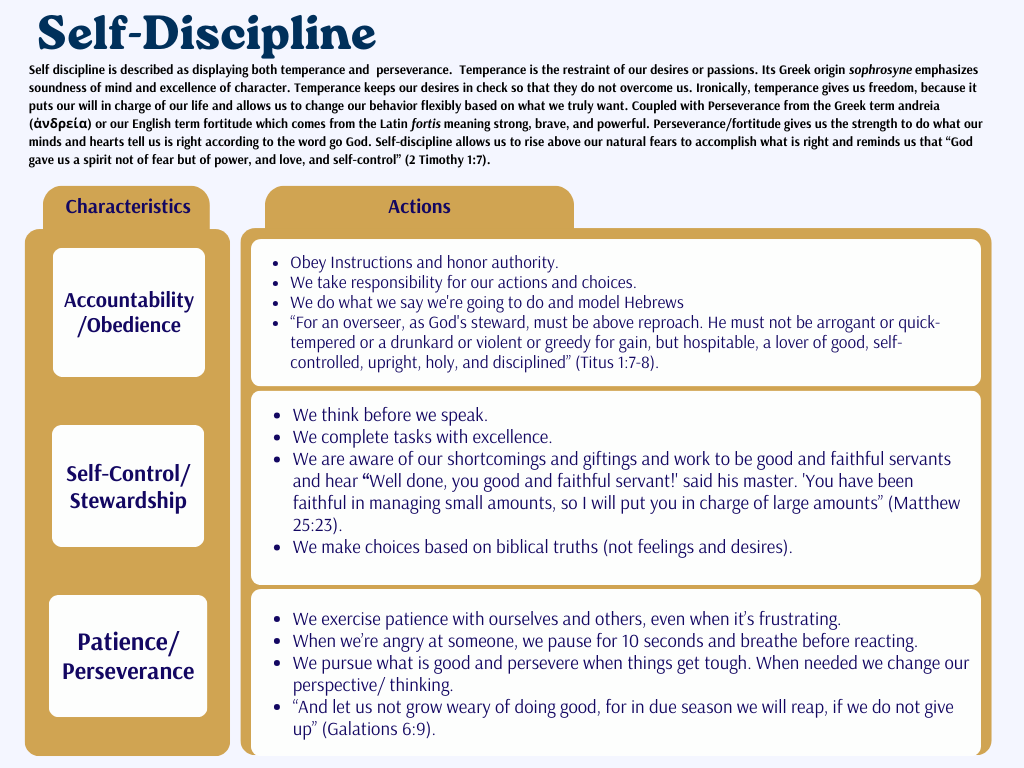Core Values
Love
The pure love which we show to God and others. In the Greek, ἀγάπη (agape) love is the Christ commanded us to show to God and our neighbors. It is the ability to show genuine concern and compassion for others. At Veritas Christian School, we strive to instill a sense of love for God, ourselves, and other people. We forgive those who may have wronged or offended us and act with simple kindness toward all, regardless of differences. We serve others with the willingness to bear other people’s burdens and comfort those who need it. We make show love through acts of sacrifice and selflessness and choose to live by I Corinthians 13 principles.
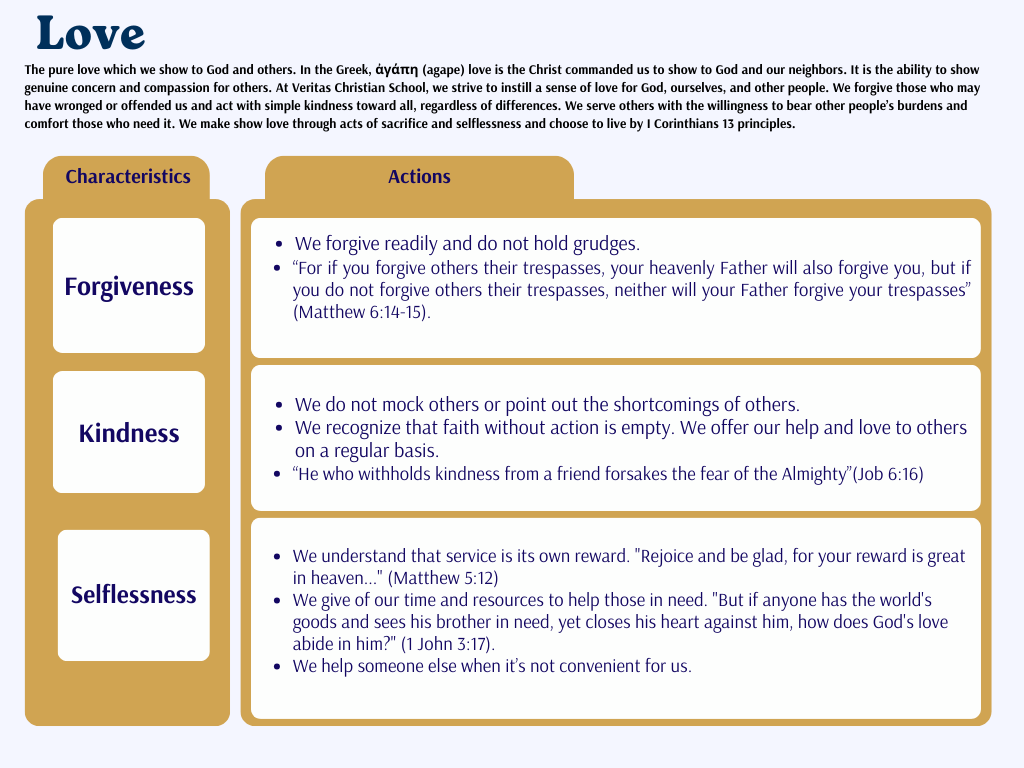
Truth
Truth, when combined with Christian other virtues, promotes righteousness and integrity. Biblical basis for the virtue and value of truth stems from John 14:6 when Jesus says,Jesus said to him, “I am the way, and the truth, and the life. No one comes to the Father except through me.”
New Testament Greek, αλήθεια, alétheia, meaning reality. Truth honors the reality in obligations to others, as well as respecting the rights of and establishing harmony that promotes equality with others. We become more truthful human beings as we strive to live righteously, maintain high morals standards, and trust in those who endeavor to help us. We recognize that the Word of God is absolute, unchangeable, and has full authority. It is not base on opinion or culture.
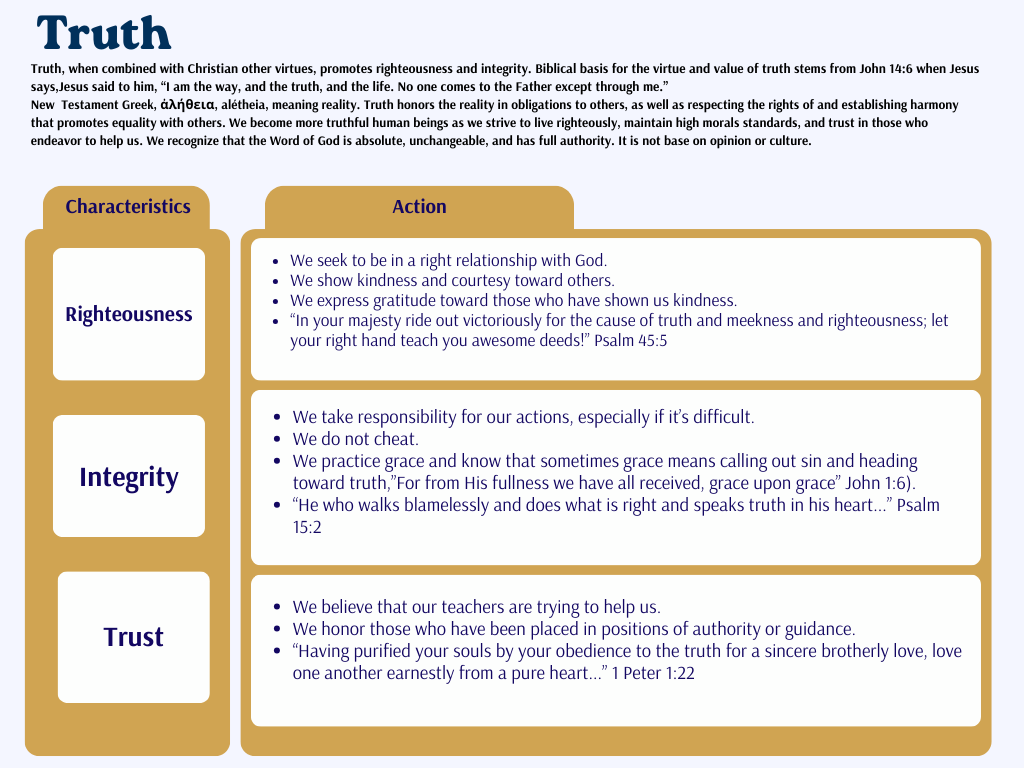
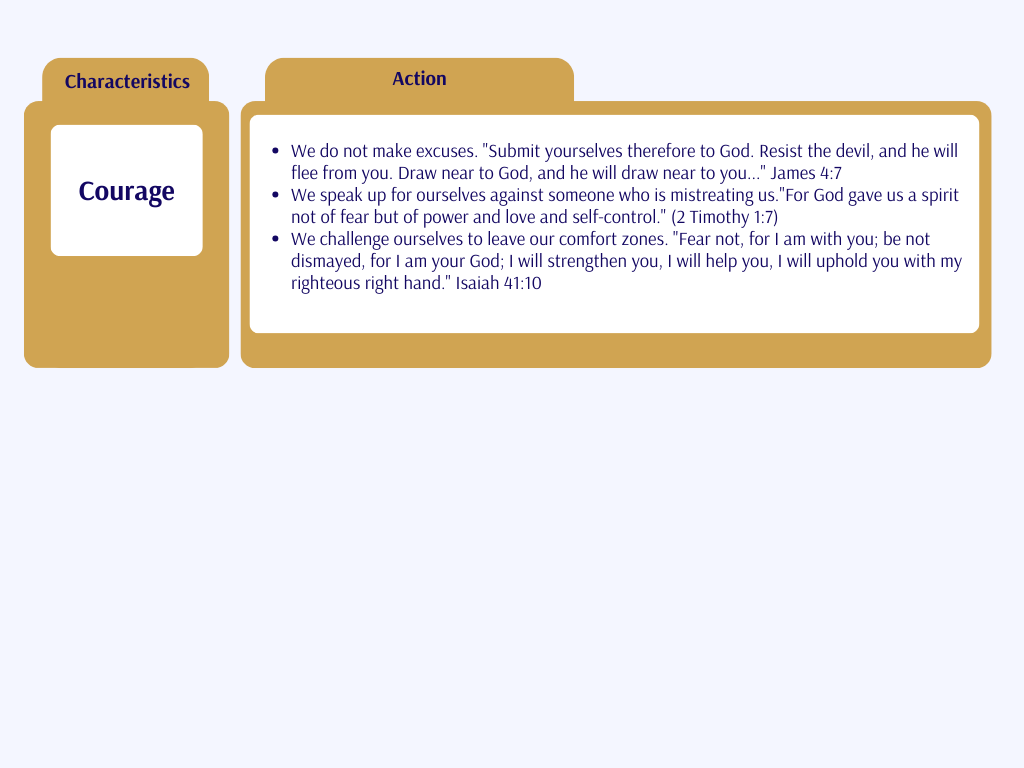
Faith
Being founded in Biblical example, Faith is employed by Christ to mean practical, rational choice. The Greek, riots or pistis, in the New Testament and in Latin, Fides, means faithfulness. We believe that “Faith is the assurance of things hoped for and the conviction of things not seen” (Hebrews 11:1). We believe that Faith comes by hearing and hearing by the word of God” (Romans 10:17). We exercise Faith because, at Veritas Christian School, we believe that the result of being faithful is what moves us toward God and allows us to work His purpose on earth.
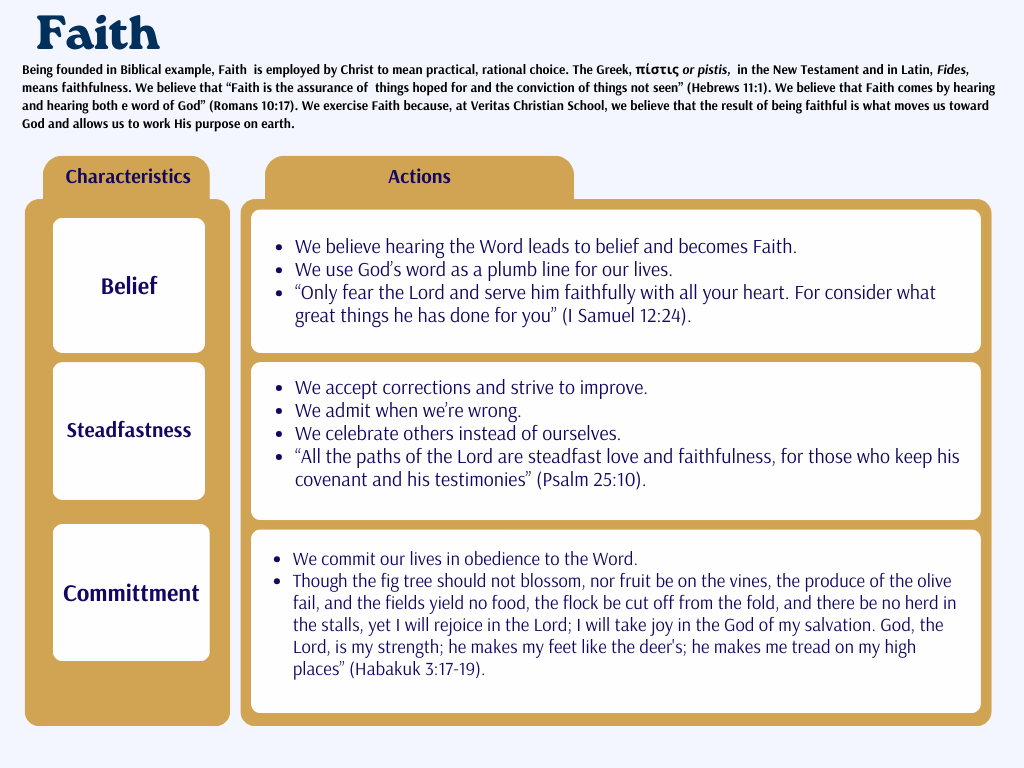
Wisdom
“For I want you to know how great a struggle I have for you and for those at Laodicea and for all who have not seen me face to face, that their hearts may be encouraged, being knit together in love, to reach all the riches of full assurance of understanding and the knowledge of God’s mystery, which is Christ, in whom are hidden all the treasures of wisdom and knowledge” (Colossians 2:1-3). Wisdom begins with reverence for the Lord, embraces His covenant (Proverbs 14:9), turns from evil (Proverbs 3:7, 4:27, 8:23, 14:16), and learns from God (Proverbs 2:6-11).
Being founded in the words of Solomon, wisdom is the exercise of prudence. Prudence (φρόνησῐς), wisdom, is defined also by Aristotle to mean practical, rational choice. Wisdom/prudence is the ability to discern the appropriate course of action to be taken in a given situation at the appropriate time. When vou’re prudent, vou apply eternal principles into ever- changing circumstances.
Balance between principles and circumstances are important. Prudence also requires us to seek the advice of others, since others may have additional wisdom or experience that we do not. “Listen, my son, to your father’s instruction and do not forsake your mother’s teaching” (Proverbs 1:8).

Self-Discipline
Self discipline is described as displaying both temperance and perseverance. Temperance is the restraint of our desires or passions. Its Greek origin sophrosyne emphasizes soundness of mind and excellence of character. Temperance keeps our desires in check so that they do not overcome us. Ironically, temperance gives us freedom, because it puts our will in charge of our life and allows us to change our behavior flexibly based on what we truly want. Coupled with Perseverance from the Greek term andreia (ἀνδρεία) or our English term fortitude which comes from the Latin fortis meaning strong, brave, and powerful. Perseverance/fortitude gives us the strength to do what our minds and hearts tell us is right according to the word go God. Self-discipline allows us to rise above our natural fears to accomplish what is right and reminds us that “God gave us a spirit not of fear but of power, and love, and self-control” (2 Timothy 1:7).
